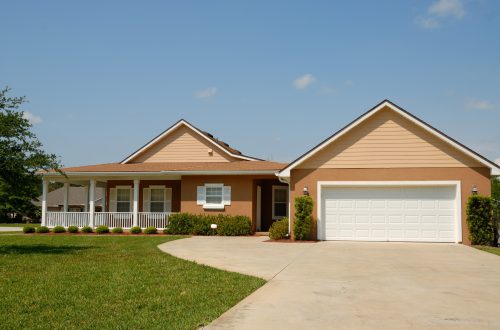
The Essential Guide to Homeowners Insurance: Protecting Your Investment
As a homeowner, it is crucial to protect your investment. One way to do this is by having homeowners insurance. Homeowners insurance provides financial protection against the loss or damage of your home and its contents. It offers peace of mind, knowing that you are covered in case of unforeseen events such as fire, theft, or natural disasters.
Why homeowners insurance is important
Homeownership is a significant investment, and without insurance, you could be vulnerable to substantial financial losses. Homeowners insurance provides coverage for various risks, including property damage, liability, and personal belongings. In the event of a covered loss, your insurance company will help you repair or rebuild your home, replace your belongings, and even cover legal expenses if someone is injured on your property.
Additionally, most mortgage lenders require homeowners insurance as a condition for granting a loan. This is because they want to protect their investment as well. So, having homeowners insurance not only protects you but also fulfills your lender’s requirements.
Understanding the different types of homeowners insurance coverage
When it comes to homeowners insurance, there are different types of coverage options available. The most common types are:
- Dwelling coverage: This covers the cost of repairing or rebuilding your home in case of damage from covered perils such as fire, windstorms, or vandalism.
- Personal property coverage: This protects your personal belongings, such as furniture, electronics, and clothing, from theft or damage.
- Liability coverage: This provides financial protection if someone is injured on your property and decides to sue you. It covers legal expenses, medical bills, and any settlements or judgments against you.
- Additional living expenses coverage: In the event that your home becomes uninhabitable due to a covered loss, this coverage will pay for your temporary living expenses, such as hotel stays or renting a new place.
- Medical payments coverage: This covers medical expenses if someone is injured on your property, regardless of fault.
Factors that affect homeowners insurance rates
Several factors can influence your homeowners insurance rates. Understanding these factors can help you make informed decisions when choosing your policy. Some of the key factors include:
- Location: The location of your home plays a significant role in determining your insurance rates. If your area is prone to natural disasters or has a high crime rate, your rates may be higher.
- Home characteristics: Factors such as the age of your home, its construction type, and the materials used can impact your insurance rates. Older homes or those made of flammable materials may have higher rates.
- Coverage limits: The amount of Oregon coverage you choose for your dwelling, personal property, and liability will affect your rates. Higher coverage limits mean higher premiums.
- Deductible: The deductible is the amount you pay out of pocket before your insurance coverage kicks in. Choosing a higher deductible can lower your premiums, but it also means you’ll have to pay more in case of a claim.
- Claims history: If you have a history of filing frequent claims, insurance companies may consider you a higher risk and charge higher premiums.
- Credit score: In some states, insurance companies use your credit score to determine your rates. Maintaining a good credit score can help you secure lower premiums.
By considering these factors and shopping around for quotes from different insurance providers, you can find a policy that offers the right coverage at a competitive price.
The benefits of homeowners insurance in Bend, Oregon
If you are a homeowner in Bend, Oregon, having homeowners insurance is particularly important. Bend is located in Central Oregon, an area prone to wildfires and severe weather conditions. Homeowners insurance in Bend provides coverage against these risks, ensuring that you are financially protected in case of a disaster.
Additionally, Bend has a growing real estate market, with home values on the rise. Homeowners insurance not only protects your investment but also gives you the peace of mind that your property is safeguarded. It allows you to focus on enjoying your home and the beautiful surroundings without worrying about potential financial setbacks.
Tips for choosing the right homeowners insurance policy
Choosing the right homeowners insurance policy can be a daunting task. Here are some tips to help you make an informed decision:
- Assess your needs: Evaluate the value of your home and its contents, as well as your liability risks. This will help you determine the appropriate coverage amounts.
- Compare quotes: Obtain quotes from multiple insurance companies and compare their coverage options, deductibles, and premiums. This will allow you to find the best policy for your needs and budget.
- Read the fine print: Carefully review the policy terms and conditions, including any exclusions or limitations. Make sure you understand what is covered and what is not.
- Consider additional coverage: Depending on your circumstances, you may need additional coverage for specific items such as high-value jewelry or artwork. Discuss these options with your insurance agent.
- Bundle your policies: Many insurance companies offer discounts if you bundle your homeowners insurance with other policies, such as auto or umbrella insurance. Take advantage of these opportunities to save on premiums.
- Review your policy annually: Regularly review your policy to ensure it still meets your needs. Update your coverage limits if necessary, and notify your insurance company of any significant changes to your home or lifestyle.
By following these tips, you can find a homeowners insurance policy that provides the right coverage for your home and offers peace of mind.
Common myths about homeowners insurance
There are several misconceptions about homeowners insurance that can lead to misunderstandings and inadequate coverage. Let’s debunk some common myths:
- Myth: Homeowners insurance covers all types of damage: While homeowners insurance provides coverage for common perils such as fire and theft, it may not cover certain types of damage, such as floods or earthquakes. Additional coverage for these perils may be necessary.
- Myth: Renters don’t need insurance: Renters insurance is essential for protecting your personal belongings and liability, even if you don’t own the property. Your landlord’s insurance does not cover your belongings or protect you against liability claims.
- Myth: Home improvements automatically increase coverage: Adding value to your home through renovations or improvements does not automatically increase your coverage. It is important to update your policy to reflect any changes in your home’s value.
- Myth: Homeowners insurance covers home-based businesses: Standard homeowners insurance typically does not cover business-related losses. If you run a home-based business, you may need additional coverage to protect your business assets and liability.
By understanding these myths and seeking guidance from your insurance agent, you can ensure that you have the right coverage for your specific needs.
How to file a homeowners insurance claim
In the unfortunate event of a covered loss, it is essential to know how to file a homeowners insurance claim. Here are the general steps involved:
- Contact your insurance company: Notify your insurance company as soon as possible after the loss occurs. Provide them with all the necessary details and documentation, including photos or videos of the damage.
- Assess the damage: An insurance adjuster will assess the damage and determine the extent of coverage. They may ask for additional information or documentation to support your claim.
- Obtain repair estimates: Get repair estimates from licensed contractors for the necessary repairs or replacements. Share these estimates with your insurance company for review.
- Document expenses: Keep track of any expenses related to the loss, such as temporary accommodations or additional living expenses. These may be covered under your policy.
- Cooperate with the claims process: Work closely with your insurance company throughout the claims process. Provide any requested information promptly and follow their instructions.
- Review the settlement: Once your claim is processed, review the settlement offer from your insurance company. If you have any concerns or questions, discuss them with your claims adjuster or insurance agent.
By understanding the claims process and maintaining detailed records, you can ensure a smoother experience when filing a homeowners insurance claim.
The role of insurance agents in homeowners insurance
Insurance agents play a crucial role in helping homeowners navigate the complexities of insurance policies. They act as intermediaries between you and the insurance company, providing valuable guidance and expertise. Here are some ways insurance agents can assist you:
- Policy selection: Insurance agents can help you understand your coverage needs and recommend suitable policies based on your specific circumstances. They can explain the differences between various policies and help you choose the one that provides the right protection.
- Risk assessment: Insurance agents have a deep understanding of the risks associated with homeownership. They can assess your property and lifestyle factors that may affect your insurance rates or coverage requirements.
- Claims assistance: In the event of a claim, insurance agents can guide you through the claims process, ensuring that you have all the necessary documentation and supporting evidence.
- Policy reviews: Insurance agents can periodically review your policy to ensure it still meets your needs. They can recommend adjustments or updates based on changes in your home or lifestyle.
- Customer advocacy: If you have any concerns or issues with your insurance company, insurance agents can act as your advocate. They can help resolve disputes and communicate on your behalf.
Insurance agents are a valuable resource when it comes to homeowners insurance. Their expertise and personalized service can help you make informed decisions and navigate the insurance landscape effectively.
Conclusion: Protecting your investment with homeowners insurance
Protecting your investment in your home is of utmost importance, and homeowners insurance provides the necessary coverage to safeguard your property and belongings. By understanding the different types of coverage, factors influencing insurance rates, and the claims process, homeowners can make informed decisions and choose the right policy for their needs.
For homeowners in Bend, Oregon, where the risks of wildfires and severe weather are prevalent, having homeowners insurance is particularly crucial. It not only protects your investment but also offers peace of mind in knowing that you are prepared for unexpected events.
Remember to review your policy regularly, work with an insurance agent, and stay informed about any changes in your home or lifestyle that may affect your coverage. With the right homeowners insurance policy in place, you can protect your investment and enjoy your home with confidence.




